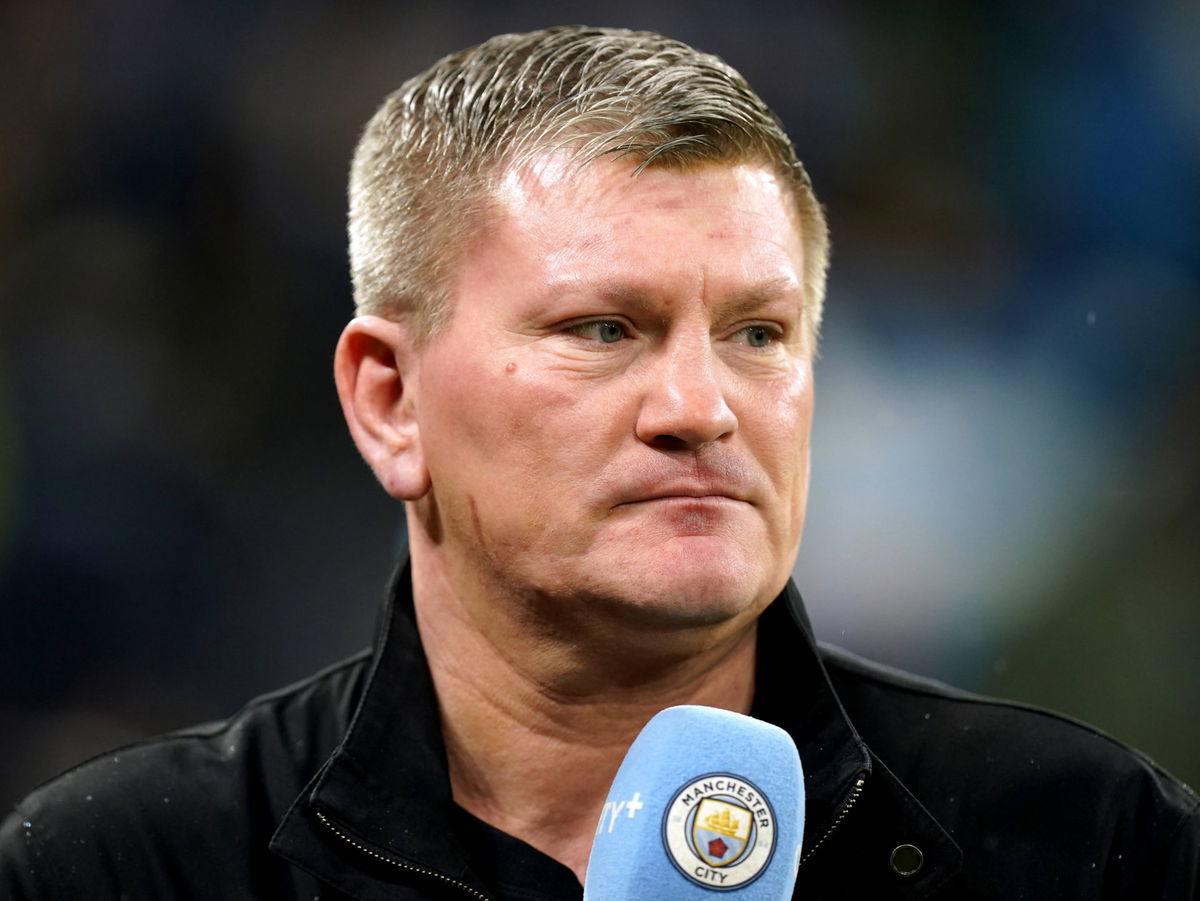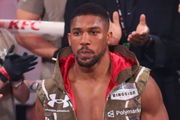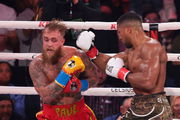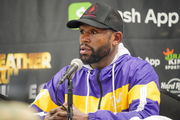
Imago
Manchester City v Atletico Madrid – UEFA Champions League – Quarter Final – First Leg – Etihad Stadium Former boxer Ricky Hatton is seen pitch side prior to the UEFA Champions League Quarter Final first leg match at the Etihad Stadium, Manchester. Picture date: Tuesday April 5, 2022. Use subject to restrictions. Editorial use only, no commercial use without prior consent from rights holder. PUBLICATIONxNOTxINxUKxIRL Copyright: xMikexEgertonx 66236917

Imago
Manchester City v Atletico Madrid – UEFA Champions League – Quarter Final – First Leg – Etihad Stadium Former boxer Ricky Hatton is seen pitch side prior to the UEFA Champions League Quarter Final first leg match at the Etihad Stadium, Manchester. Picture date: Tuesday April 5, 2022. Use subject to restrictions. Editorial use only, no commercial use without prior consent from rights holder. PUBLICATIONxNOTxINxUKxIRL Copyright: xMikexEgertonx 66236917
Alex Eastwood wasn’t just another name on a fight card—he was a rising star. At just 15, the Liverpool teenager had already claimed gold at the 2023 World Kickboxing Championship in Orlando, a feat most athletes spend a lifetime chasing. Talented, dedicated, and fiercely disciplined, he had big dreams ahead of him, including the honor of representing Great Britain in Portugal.
Watch What’s Trending Now!
But those dreams were cut short.
In June 2024, Alex stepped into the ring one more time against a 17-year-old opponent, this time for a charity event held at a gym in Wigan. What his family didn’t realize—and what many in the audience likely assumed was just another well-organized match—was that the fight hadn’t been sanctioned. There were no mandatory medical checks, no official oversight, and none of the safety nets that come with regulation under Kickboxing GB, the sport’s national governing body.
ADVERTISEMENT
During the match, Alex collapsed after the third round. He never got back up. Three days later, he passed away at the Royal Manchester Children’s Hospital.
An inquest recently concluded that he suffered a catastrophic brain injury, caused by the impact sustained during the fight. The coroner recorded a verdict of misadventure—an accidental death—but criticized the planning of the event, calling it “chaotic and disjointed” and lacking even “the safeguards you’d expect to be in place.”
His family was devastated, not only by the loss but by the revelation that the match hadn’t been officially sanctioned. Alex’s stepmother said, “We had no idea that this was an unsanctioned, unregulated fight.” His father admitted, “You presume that the regulations and the sanctions are taken care of by the professionals involved in that sport.”
ADVERTISEMENT
What emerged was a disturbing gap in oversight—a gray area where children are allowed to compete in contact sports without the protections that are standard in professional or licensed amateur events. Alex’s parents are now trying to get the government to step in and put safeguards in place so that no other parent has to bear witness to the death of their child in such a way. “It’s a great sport for people, but as long as everyone comes home safe,” said Stephen Eastwood. “It’s not at the moment, because Alex hasn’t come home safe.”
The tragedy has struck a nerve well beyond Alex’s family. Former world champion Ricky Hatton, who began his own combat sports journey in kickboxing as a child, met with Alex’s father and voiced his support for stricter rules. “When it’s for the kids,” he said, “it’s even more important that everything is structured.”
ADVERTISEMENT
The British boxing legend didn’t mince words: combat sports, often dubbed “the hurt business,” need proper oversight—and that includes help from the government. “Someone needs to step in,” he added. But the UK government’s position has remained firm. Sport, they say, should regulate itself. While that might work on paper, Alex’s death showed how easily things can slip through the cracks when regulation is optional.
View this post on Instagram
Some gyms have now promised change. But for many, that’s too little, too late.
ADVERTISEMENT
The response to Alex Eastwood’s death has been raw and deeply emotional. On social media, the public has weighed in from every angle—some with grief, others with frustration, and many with a deep sense of unease about the future of youth combat sports.
A Divided Public—Support, Grief, and Blame in the aftermath of Alex Eastwood’s tragic passing
One user acknowledged the brutal nature of the sport, writing, “Everybody that steps in a ring or a cage knows the risks, my heart goes out to him but the game is what it is.” It’s a sentiment shared by many in the fight community—a recognition that while the danger is ever-present, it’s often accepted as part of the sport’s culture.
ADVERTISEMENT
Another user, clearly well-versed in combat sports, offered a more nuanced take: “We want world champions at 25, not 15. A child isn’t of age to be able to decide if they want to take the risk on head trauma imo. 18, you can smoke, drink and join the army, that’s when the informed decision should be made by the individual. Heart goes out to the parents, well meaning no doubt, wanting their kids to be successful and to be able to defend themselves. RIP.” Their words reflected a wider concern that young fighters are often pushed too early into situations they can’t fully understand.
But it wasn’t all criticism. One comment simply honoured the spirit of the fighter: “To have passed on whist doing what he loved, that young man went out on his shield. Love and respect to you, rest in peace, Alex Eastwood. ❤️” A quiet tribute, born from admiration and sadness.
Top Stories
Floyd Mayweather Faces Threat of Losing Post-Boxing Empire as 8-Figure Debts Mount: Report

Anthony Joshua Discharged From Hospital as Police Arrest Driver Over Fatal Car Crash in Nigeria

“Rest in Peace”: Condolences Pour In as Legendary Coach Freddie Roach Mourns Personal Loss

Jake Paul Faces Another Setback as WBA Drops Him After Anthony Joshua Knockout Loss

Floyd Mayweather Breaks Silence as $402M Real Estate Deal Goes Allegedly Wrong

The debate also extended into policy. Some questioned the broader implications of sanctioning: “I don’t understand. What would be the difference if it was sanctioned?”—a question that laid bare just how little the general public may know about the safety protocols in place, and why they matter.
ADVERTISEMENT
One particularly firm stance came from a user who called for outright legislative intervention: “What a sad situation that should have never happened. All unlicensed contact sports need banning by the Government. In any fight sport strict rules are set out by Governing bodies for a reason. RIP 😢”
Finally, another voice expressed compassion for everyone affected, even Alex’s opponent: “Huge condolences to the family and also to the poor kid who he fought. The repercussions for this are endless 😢 I’m genuinely shocked that no sanctions exist in a sport like kickboxing, especially when there’s plenty in grassroots football (not heading the ball, no throw ins etc). Any improvements for safety is never a bad thing.”
Together, these comments paint a picture of a community shaken, a public divided, and a sport facing a reckoning. Whether this moment will lead to meaningful reform remains to be seen—but for many, Alex Eastwood’s story has already become a turning point.
ADVERTISEMENT
ADVERTISEMENT
ADVERTISEMENT
ADVERTISEMENT

